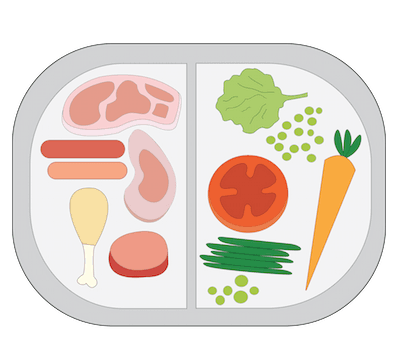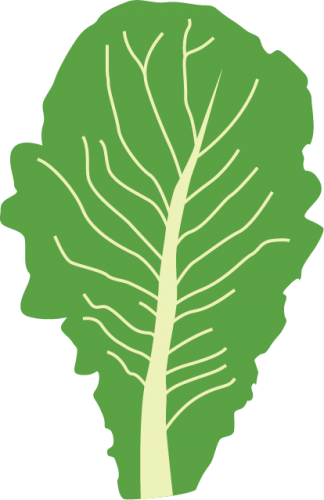
It seems like a fad. Vegetarian and vegan restaurants are popping up in all of the hip neighborhoods around Chicago. But are they more than just a passing trend?
I’ve been a vegetarian for six years now and haven’t even considered eating meat again: the health, environmental and animal rights aspects are all reasons I am not even tempted by a steak anymore.
A recent report by the World Health Organization has many people rethinking their meat intake, and for a good reason. The report, originally by the International Agency for Research on Cancer, showed a strong correlation between processed meat and colorectal cancer. This classification as a carcinogen just adds to the long list of reasons why we should stay away from meat, along with living longer and having less risk of heart disease.
Vegetarian diets are naturally lower in saturated fats and cholesterol, as well as higher in nutrients, vitamins, minerals, antioxidants, fiber and more. Studies have shown that vegetarians have a 24 percent lower risk of dying from heart disease than those who have a meat-based diet. According to a 12-year Oxford study, vegetarians out-live meat eaters by six years.
[box]Read: Making the case for meat[/box]
Defenders of meat often use the ‘protein card’ when trying to convince me that my vegetarian lifestyle is actually unhealthy. According to Web MD, adult women need about 46 grams of protein a day. It is really easy for a vegan to meet these protein recommendations, as nearly all vegetables, beans, grains, nuts and seeds contain protein.
In fact, many professional athletes are vegan or vegetarian and they have to be some of the healthiest people in the world. The most well known in America is probably former NFL player Tony Gonzalez, a tight end for the Kansas City Chiefs and Atlanta Falcons.
In the book “Eating Animals,” acclaimed author Jonathan Safran Foer said, “it is clear that vegetarians and vegans tend to have more optimal protein consumption than omnivores,” while reducing the risk of osteoporosis, kidney disease, calcium stones in the urinary tract and some cancers.
Vegetarianism is given a bad name by those who try to shove vegetables down people’s throats or picket fast food restaurants with signs that say, “Meat is Murder!” Although that seems like a drastic measure to convince someone of your viewpoint, it’s kind of true.
 Animals are kept in tiny cages, pumped full of hormones and treated terribly before dying a slow and painful death from disease. According to Foer, most egg-laying hens live in cages smaller than a piece of paper. For their whole lives. According to PETA, labels like “free-range” and “organic” are meant to trick you into thinking the animal’s life was cruelty-free. But according to PETA, the details of what a “free-range” or “organic” label actually means are ambiguous at best: “Many organic and ‘free-range’ farms cram thousands of animals together in sheds or on mud-filled lots to increase profits… and the animals often endure the same mutilations — such as debeaking, dehorning, and castration without painkillers — that occur on factory farms.”
Animals are kept in tiny cages, pumped full of hormones and treated terribly before dying a slow and painful death from disease. According to Foer, most egg-laying hens live in cages smaller than a piece of paper. For their whole lives. According to PETA, labels like “free-range” and “organic” are meant to trick you into thinking the animal’s life was cruelty-free. But according to PETA, the details of what a “free-range” or “organic” label actually means are ambiguous at best: “Many organic and ‘free-range’ farms cram thousands of animals together in sheds or on mud-filled lots to increase profits… and the animals often endure the same mutilations — such as debeaking, dehorning, and castration without painkillers — that occur on factory farms.”
The consequences of factory farms aren’t just limited to the rights of the animals within them. In its 2006 report, the United Nations found that livestock generate more greenhouse gases than all the cars and the trucks in the world combined.
Carnivores: don’t feel attacked when a vegetarian explains why they think eating meat is wrong. Listen. Do research. Maybe you’ll find out something you didn’t know before. When I became vegetarian, I read books like “Eating Animals” by Foer, articles, watched documentaries and those heart-wrenching PETA videos, and everything else I could do to increase my knowledge. Meat itself isn’t the enemy, it’s the process, the environmental impact and the innocent animals who are being crushed by the industry.

